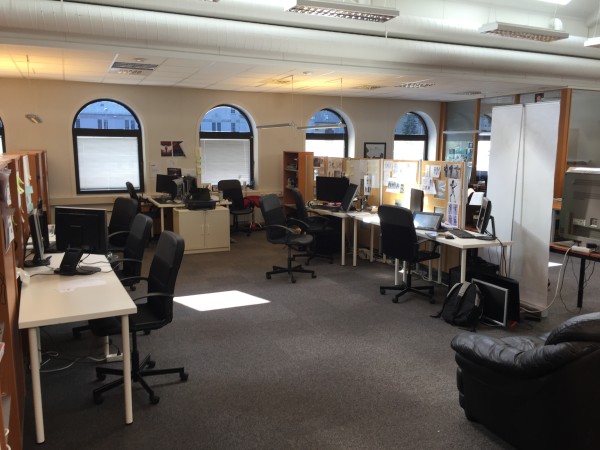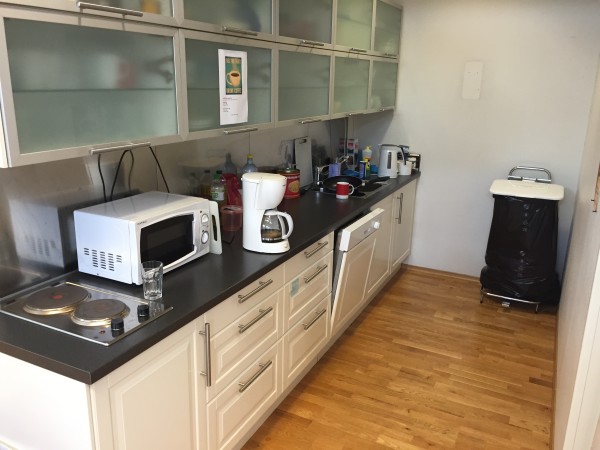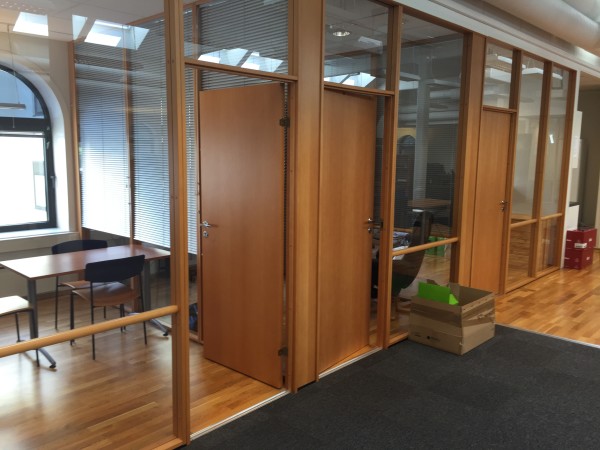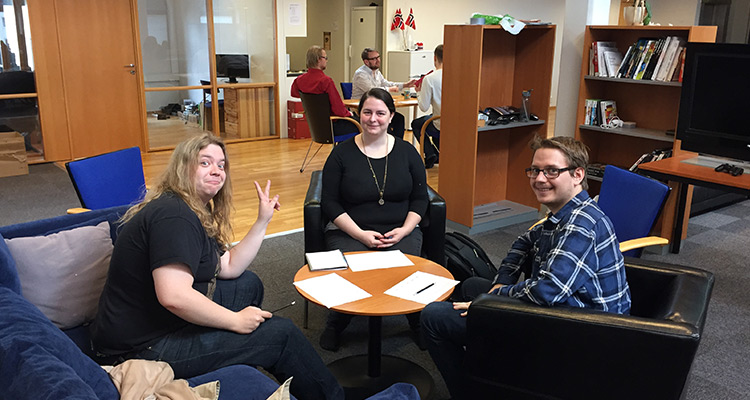How Indie-Only Shared Office Space Makes More Than Financial Sense
In June I was invited to present at the Bergen Game Collective, a shared office space for independent video game development studios in Bergen, Norway. Being from the Boston area, a U.S. start-up mecca, I’m no stranger to both the concept and practice of shared office space and the critical role it can play in helping cash-poor start-ups get off the ground. However, I have never experienced one quite like the Bergen Game Collective, i.e., a shared office space housing only indie game studios. This concept fascinated me, and so after my presentation, I spoke with one of the Collective’s tenants—Peter Meldahl, CEO of Rain Games (makers of Teslagrad)—to get a better understanding of the benefits and challenges of a shared indie work space, as well as how it works logistically. Below is what I learned.
Indie-Only Shared Office Space
- Benefits
The Bergen Game Collective is shared by four independent video game developers, including: Rain Games (Teslagrad), Henchman & Goon (Flem), Bitsquad (Power Crab Racing) and Retrogene Studio (SpinSling). And while these four companies originally formed the Collective as a cost saving measure, after moving into their new digs, they soon realized additional benefits that far outweighed their savings.
Henchman & Goon section in the Bergen Game Collective.
Working side-by-side (literally) with other developers has created both valuable knowledge and resource sharing. For example, if Henchman & Goon needs feedback on a design idea, it doesn’t have to solely rely on its own staff. The studio can walk 10 feet to Rain Games and ask for help. And ask for help they do. In fact, all companies in the Collective ask for help on a regular basis from one another and not just on design, but art, programming, marketing and beyond. Peter attributes this knowledge share to the collaborative atmosphere the Collective fosters and strongly believes it makes for stronger games and teams.
- Challenges
Much to my surprise, Peter told me that there are no real challenges in sharing an office space between four teams. (He even noted that the dishes aren’t piling up too much.) The only real challenge he mentioned, were the logistics of moving in: coordinating four teams, each with their own equipment, was quite a feat.
A clean kitchen in the Bergen Game Collective.
- Logistics
Of course I was intrigued by everything I learned. Affordable rent for great space, access to shared resources, no major challenges…it all sounded great. But what about the logistics in securing such a space, then maintaining it? How does that work? It turns out the majority of one’s effort in securing shared office space is spent in upfront work, including finding the space and ensuring day-to-day operations run smoothly.Finding the space for the Collective was quite an endeavor. For about three years, Rain Games and Henchman & Goon had wanted to share an office space with one another, but didn’t look seriously until they got interest from Bitsquad and Retrogene Studio. Together, the four companies made a concerted effort to find a space, and over the course of one month, toured seven different facilities. During this month, they found the space they currently rent: an open-office layout that had two years left on a five-year lease at half market price. It was a steal!

Conference rooms for private meeting space.
Once moved in, the Collective knew it had to put in place measures to guarantee smooth day-to-day operations. And so, one employee was designated as the office administrator. In addition to his development responsibilities, this person manages the space, including filing any necessary paperwork with the building, ensuring cleaners come in regularly to vacuum the floor, etc. To compensate him for this additional responsibility, each studio in the Collective contributes toward 20 percent of his salary.
Finally, to ensure a clean work environment, each company in the Collective takes turns doing dishes, taking out trash, etc. on a pre-defined weekly rotational schedule.

The cool loft area of the Collective.
With seemingly minimal challenges, shared office space that caters to indies makes real sense. There is of course a lot of upfront work in both finding and securing space, as well as ensuring smooth day-to-day function, but once those things are in place, the benefits developers receive from knowledge and resource sharing can be invaluable. As Peter says, “great communities are what make great industries blossom.” I tend to agree and think shared office space is something worthwhile to look into.
Leave a Comment
Only registerd members can post a comment , Login / Register



1 Comment
Bright Akyempon
about 7 years agoHi my name is Bright Akyempon I'm an indie game Developer living in LA. I was wondering where can you find more cool places like that In America. I'm currently located in Los Angeles and would love to join one of those indie collectives.